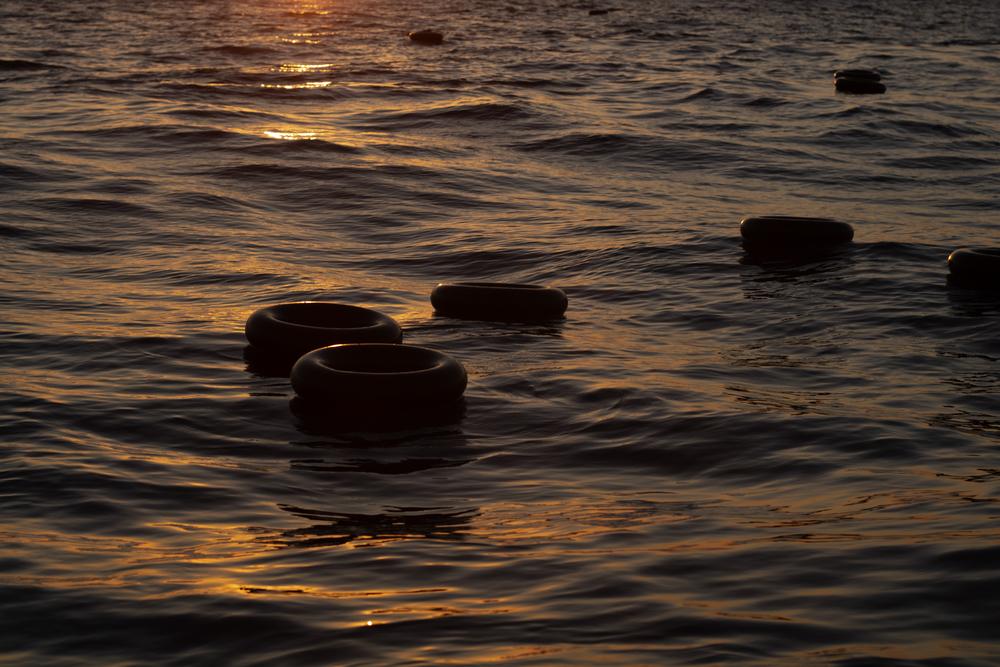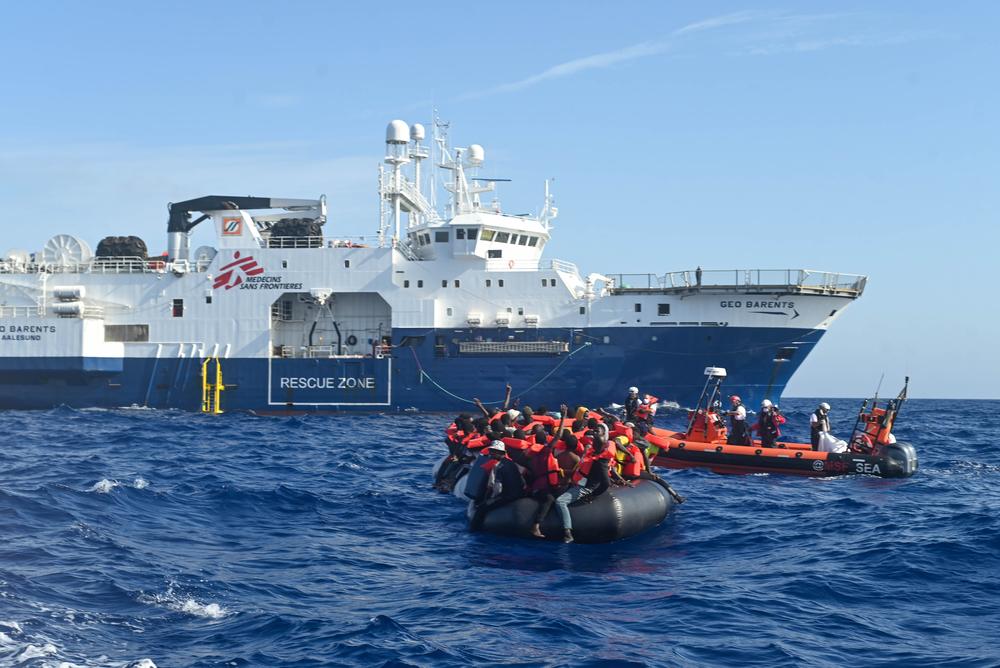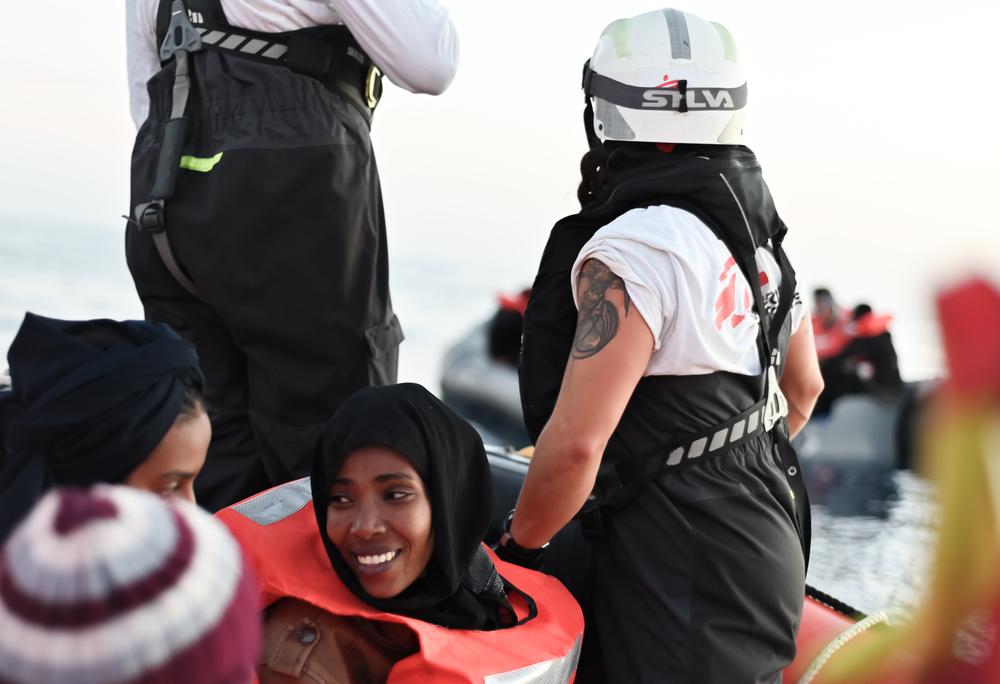
"No one came to our rescue”: The new normal of EU migration policies in the Central Mediterranean
In 1 click, help us spread this information :

With almost 2,200 children, women, and men reported missing or dead in the Central Mediterranean this year, 2023 has already earned the unenviable record of being the deadliest year on this migration route since 2017. In its new report, No one came to our rescue, the international medical organisation MSF denounces the violent border practices and deliberate inaction of European states that have led to more deaths at sea.
In 2023, the number of people arriving at Italy’s shores via the Central Mediterranean route has more than doubled compared to the same period last year, with Tunisia overtaking Libya as the main departure point. This significant increase in departures coupled with the lack of state-led rescue capacities have resulted in more boats in distress and shipwrecks. Since the beginning of the year, an average of eight people lost their lives or went missing each day in the Central Mediterranean.

Violent journeys
Between January and September 2023, the MSF medical team carried out 3,660 consultations for survivors on Geo Barents. People rescued often suffered from health conditions directly related to the dangerous sea crossings, including fuel burns, fuel poisoning, hypothermia, and dehydration.
Many survivors also experienced medical issues related to cramped and inhumane living conditions during their captivity in Libya, such as skin infections and untreated wounds. Moreover, 273 patients presented with serious violence-related traumas, including scars from gunshot wounds or violent beatings, unwanted pregnancies caused by sexual violence, and concerning levels of psychological distress, such as anxiety, nightmares, and flashbacks.
For more than two years, MSF teams on board Geo Barents have treated the physical and mental health impacts of European migration policies. Patients’ wounds and stories reflect the scale of violence to which they were subjected in their country of origin and along their journey, including in Libya and Tunisia,” says Juan Matias Gil, MSF search and rescue representative.

Deadly non-assistance
Indifferent to the immense suffering playing out at its doors, the European Union and its member states have further invested in harmful migration policies, laws, and practices that show little to no regard for the human cost. While the MSF team in the Mediterranean Sea continues to witness forced returns to Libya, new agreements with third countries, such as with Tunisia this summer and more recently with Albania, are the latest worrying attempts in Europe to deviate from states’ obligations to assist people seeking protection.
“Once again, deterrence and containment are prioritized above people’s rights and lives,” says Gil.
In early 2023, the Italian government also adopted new rules obstructing lifesaving NGO-led activities at sea, with deadly consequences that seriously limit humanitarian assistance and widen the void in rescue operations in the Central Mediterranean. In the first nine months of 2023, the Italian authorities detained six NGO rescue vessels, including Geo Barents, under the new law. This cumulates to 160 days –over five months – that NGO ships were in detention and unable to save lives.
In addition, the regular practice of assigning distant ports to NGO vessels forced Geo Barents to travel an extra 28,000 kilometres – amounting to about 70 days of navigation – to reach and return from unnecessarily faraway ports.
“On top of delaying survivors’ access to adequate medical assistance, protection, and reception services on land, those were days we were deliberately kept away from assisting people in distress at sea. While the new Italian rules target NGOs, the real price is paid by those fleeing across the Central Mediterranean, who are left without assistance,” says Gil.
From aboard Geo Barents, MSF also witnessed first-hand blatant rights violations in which Italy and Malta failed to coordinate rescues and ensure assistance to those at risk of drowning, leading to delayed rescues or no rescue at all. Italian authorities have on several occasions instructed NGOs vessels not to assist boats in distress and forced them to proceed to port immediately, while in June 2023, MSF documented at least one death as the direct result of Malta’s systematic policy of non-assistance at sea.
How many more deaths in the Central Mediterranean will the European states wait for before they halt their hostile and inhumane approach?” says Gil.
“We urge the European Union and its member states, especially Italy and Malta, to immediately change course in order to prioritise the safety of those seeking sanctuary at European shores.”